Determining Used Boat Values: A Clear Guide
Determining the value of a used boat can be a tricky process, but it’s important if you’re looking to buy or sell a vessel. There are a number of factors that can affect the value of a boat, including its age, condition, and features. Fortunately, there are several resources available to help you determine the value of a used boat, so you can make an informed decision.
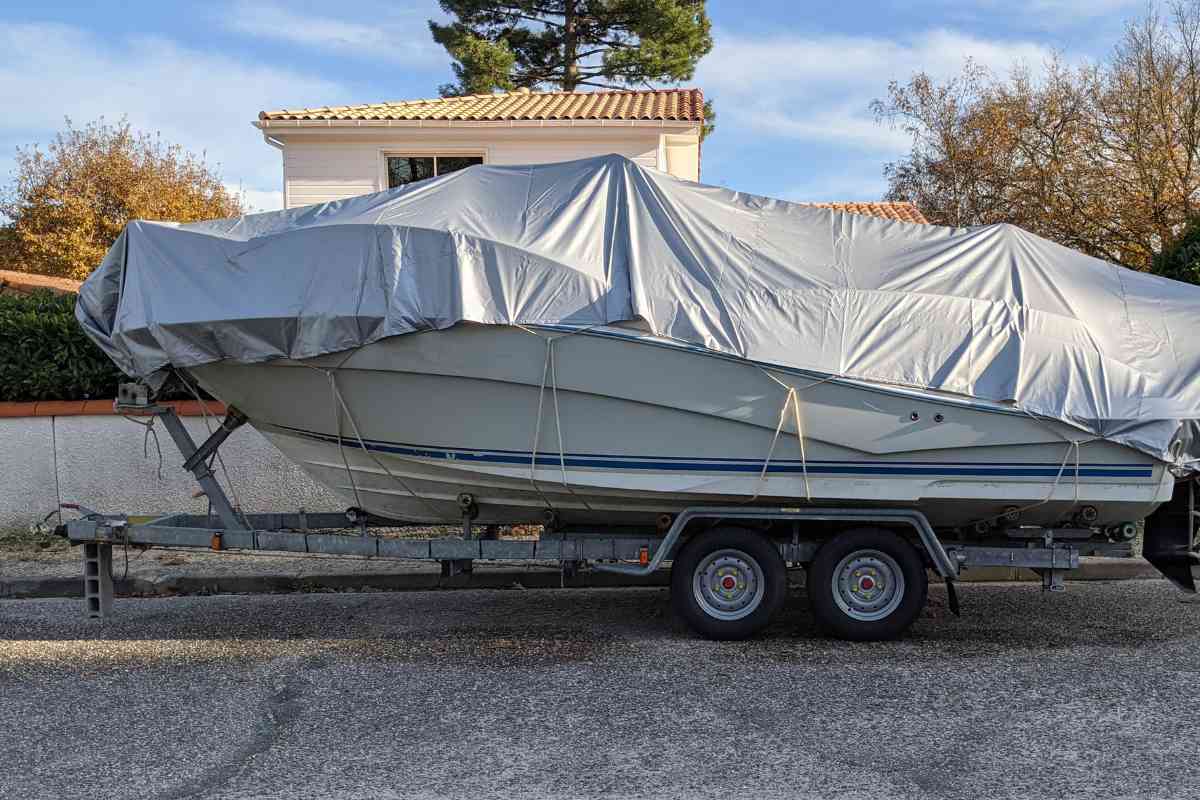
How do you determine a used boat’s value?
Determining a used boat’s value involves considering factors like its age, condition, and features. Resources like the NADA Guide can provide estimates based on these factors. Additionally, the boat’s make, model, and any additional equipment it may have can affect its value. Market trends and the boat’s location also play a role in its worth.
One of the most useful resources for determining the value of a used boat is the NADA Guide. This guide provides marine used boat values for a variety of vessels, including personal watercraft, sailboats, outboard motors, and trailers. To get an accurate value for your boat, you’ll need to take into account factors such as the boat’s make and model, its age and condition, and any additional features or equipment it may have. Using the NADA Guide can help you get a better idea of what your boat is worth, so you can make an informed decision when buying or selling.
Another helpful resource for determining the value of a used boat is BoatCrazy.com. This site offers a boat pricing tool that takes into account a number of factors, including the boat’s size, age, model, and condition. The site also considers the boat’s location and equipment when determining its value. By using this tool, you can get a better idea of what your boat is worth, and make sure you’re getting a fair price when buying or selling.
Understanding Boat Values: A Detailed Guide
Determining the value of a used boat can be a complex task, especially for those new to the boating world. However, understanding boat values is crucial for buying or selling a used boat. This guide will help you understand the factors that influence the value of a used boat.
Boat Condition and Age
The condition and age of the boat are among the most important factors that determine its value. A well-maintained boat with no visible signs of wear and tear will be worth more than a boat that has been neglected and shows signs of damage.
The boat’s age, hours of use, and maintenance history can also significantly affect its value. Older boats are generally worth less than newer ones, but a well-maintained older boat can be worth more than a poorly maintained newer boat. The condition of the boat’s hull, deck, and interior also plays a significant role in its value.
Boat Type, Size, and Model
The type, size, and model of the boat can impact its value. Generally, larger boats with more amenities and features are worth more than basic models. The type of boat, such as a sailboat or a powerboat, can also influence its value.
Some brands and models are more desirable than others, and certain models may have features that increase their value. For instance, boats with newer, more powerful engines will be worth more than those with older, less powerful ones. Additionally, boats with outboard motors may be worth more than those with inboard engines.
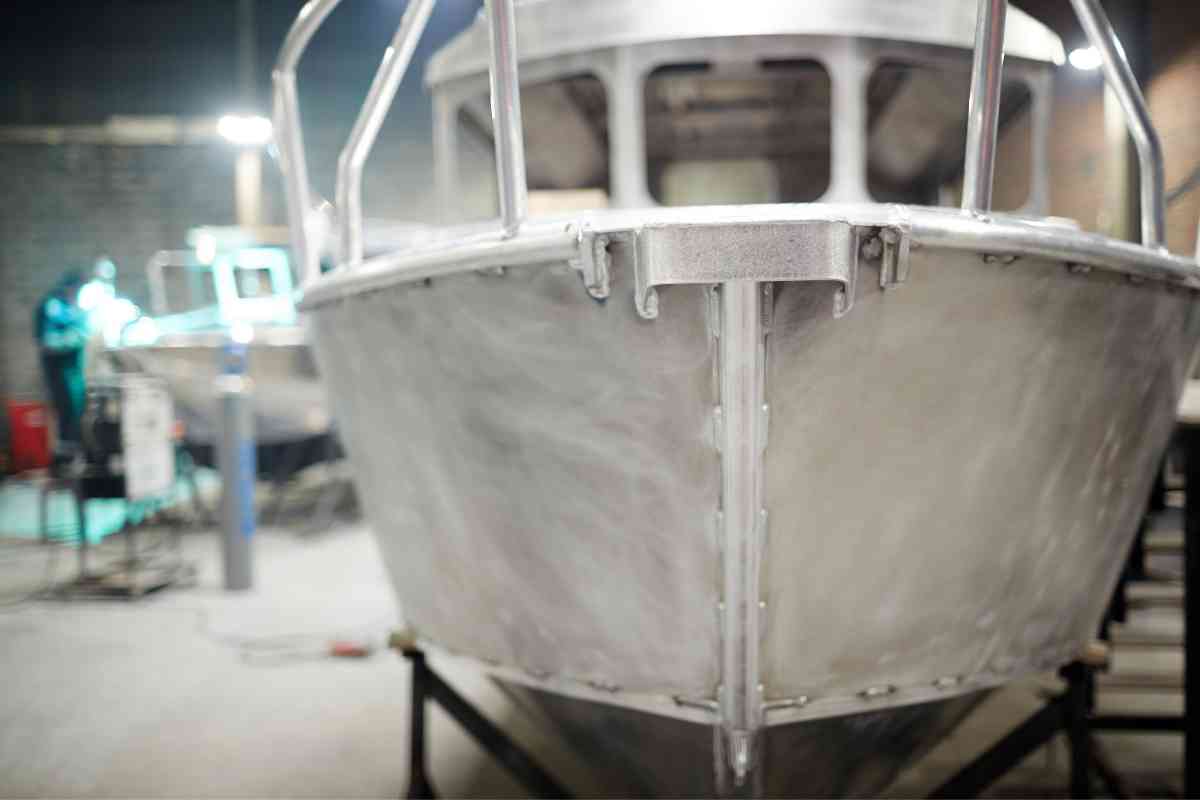
Market Trends
Market trends can play a significant role in determining the value of a used boat. If there’s high demand for a particular type of boat, its value may increase. Conversely, if there’s an oversupply of a specific type of boat, its value may decrease. It’s important to research the market and consider the right time to buy a boat to see how different makes and models are selling.
Equipment and Upgrades
Boats with additional equipment and upgrades may be worth more than those without. Features like GPS systems, sound systems, and fishing equipment can add value to a boat. Upgrades like new upholstery or a fresh coat of paint can also increase its worth.
Maintenance and Storage
The maintenance and storage of a boat can also affect its value. Boats that have been well-maintained and stored properly will be worth more than those that have not. Regular maintenance and proper storage can help extend the life of a boat and keep it in good condition.
Boats that have been stored properly, in a dry, cool place, and covered with a tarp to protect it from the elements, will retain their value better.
Boat Value Guides

There are several boat value guides available that can help determine the value of a used boat. These guides consider various factors such as the boat’s make and model, year, condition, and location. However, these guides are only estimates and should be used as a starting point when determining the value of a used boat.
Understanding boat values is crucial when it comes to buying or selling a used boat. By considering all these factors, you can ensure that you get a fair price for your boat or make an informed decision when purchasing a used one.
Assessing Boat Value
Determining the value of a used boat can be a challenging task. However, by following a few simple steps, you can get a good idea of what your boat is worth. In this section, we will discuss three methods for assessing the value of a used boat: using NADA Guides and Blue Books, consulting boat dealers and brokers, and utilizing online price checking tools.
Using NADA Guides and Blue Books
NADA Guides and Blue Books are two popular resources for determining the value of a used boat. These guides take into account several factors such as the make, model, year, condition, and location of the boat. They provide a fair price range based on the current market value of a boat.
When using NADA Guides or Blue Books, it is important to keep in mind that they are only guides and should not be taken as the final word on the value of your boat. Factors such as maintenance history, upgrades, and local demand can all affect the market value of a boat.
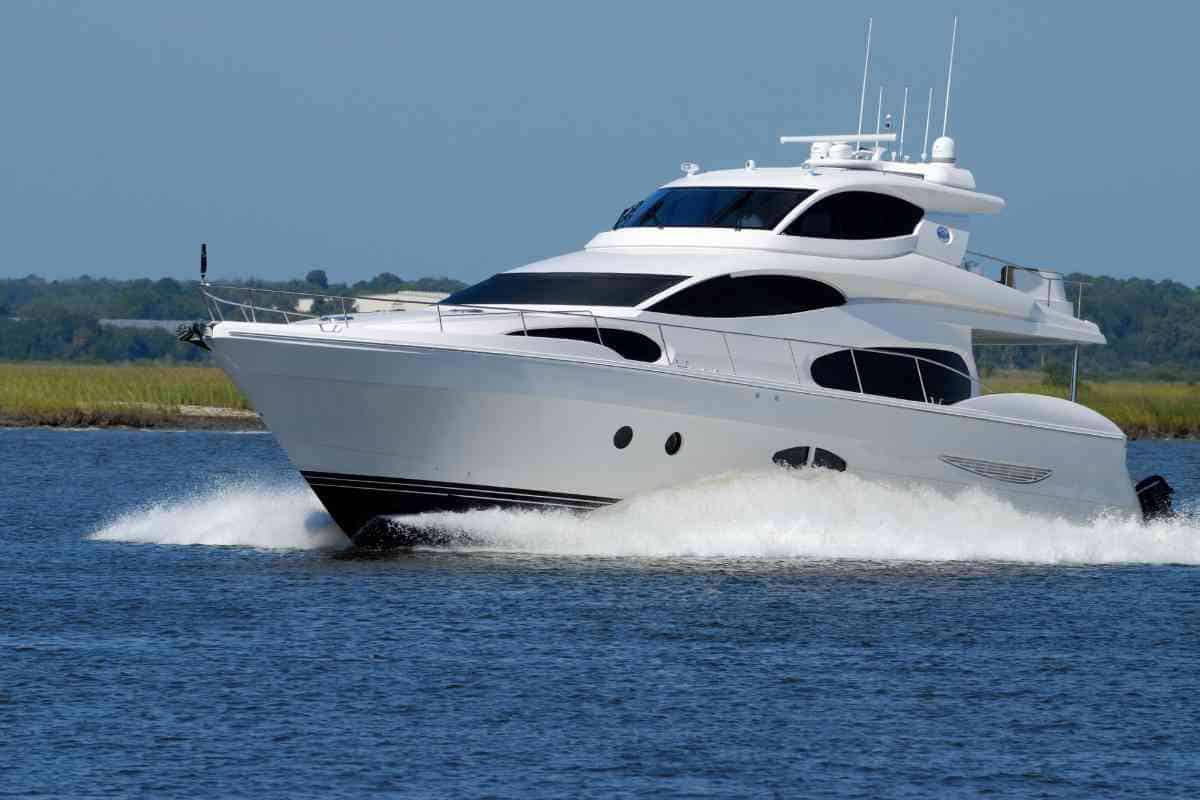
Consulting Boat Dealers and Brokers
Boat dealers and brokers are experts in the used boat market and can provide valuable insights into the fair market value of a boat. They have access to current pricing data and can take into account local market trends when assessing the value of a boat.
When consulting with a boat dealer or broker, it is important to keep in mind that they may have a vested interest in the sale of a boat. Therefore, it is important to do your own research and get multiple opinions before making a decision.
Online Price Checking Tools
Online price checking tools are a quick and easy way to get an idea of the fair market value of a used boat. These tools take into account several factors such as the make, model, year, and condition of the boat, as well as its location.
When using online price checking tools, it is important to keep in mind that they are only estimates and should not be taken as the final word on the value of your boat. Factors such as maintenance history, upgrades, and local demand can all affect the market value of a boat.
Determining the value of a used boat requires research and careful consideration of several factors. By using NADA Guides and Blue Books, consulting with boat dealers and brokers, and utilizing online price checking tools, you can get a good idea of the fair market value of your boat.
The Role of Marine Surveyors
Marine surveyors play a crucial role in the process of determining the value of a used boat. They are professionals who are trained and certified to inspect and evaluate boats to determine their condition, value, and overall seaworthiness.
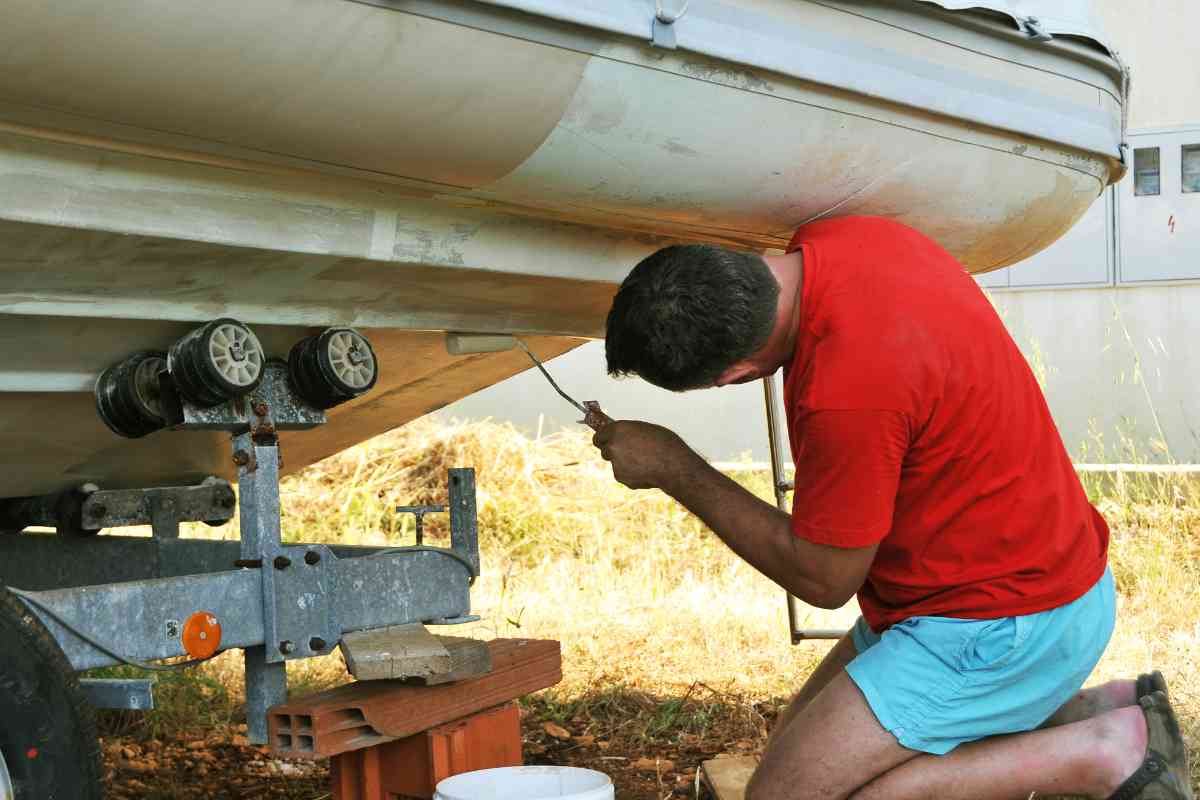
Why Hire a Professional Surveyor
Hiring a professional surveyor is highly recommended when purchasing a used boat. A surveyor can provide an unbiased and objective assessment of the boat’s condition, which is essential when negotiating the price. They can also identify any potential problems or safety issues that may not be apparent to an untrained eye.
It is important to note that not all surveyors are created equal. When hiring a surveyor, it is recommended to look for one who is a member of a professional society such as the Society of Accredited Marine Surveyors (SAMS) or the National Association of Marine Surveyors (NAMS). These organizations have strict standards for their members and ensure that they are knowledgeable, experienced, and ethical.
Understanding the Survey Process
The survey process typically involves a thorough inspection of the boat, both above and below the waterline. The surveyor will examine the hull, deck, rigging, electrical systems, plumbing, and other components to assess their condition and functionality. They may also conduct sea trials to evaluate the boat’s performance and handling.
After the survey is complete, the surveyor will provide a detailed report that includes an assessment of the boat’s condition and value. This report can be used to negotiate the price of the boat or to obtain financing or insurance.
It is important to note that the cost of a marine survey can vary depending on the type of survey being performed, the size and age of the boat, and the location of the survey. However, the cost of a survey is a small price to pay for the peace of mind that comes with knowing the true condition and value of a used boat.
Hiring a professional surveyor is an essential step in the process of determining the value of a used boat. They provide an unbiased and objective assessment of the boat’s condition and value, which is crucial when negotiating the price. By understanding the survey process and working with a reputable surveyor, buyers can make informed decisions and ensure that they are getting a fair deal.
Boat Depreciation and Replacement Value
Determining the value of a pre-owned boat can be a challenging task, as there are a variety of factors that can impact its worth. One of the most significant factors to consider is depreciation. All boats depreciate over time, but the rate at which they do so can vary depending on a range of factors, including the make and model of the boat, its age, and its condition.
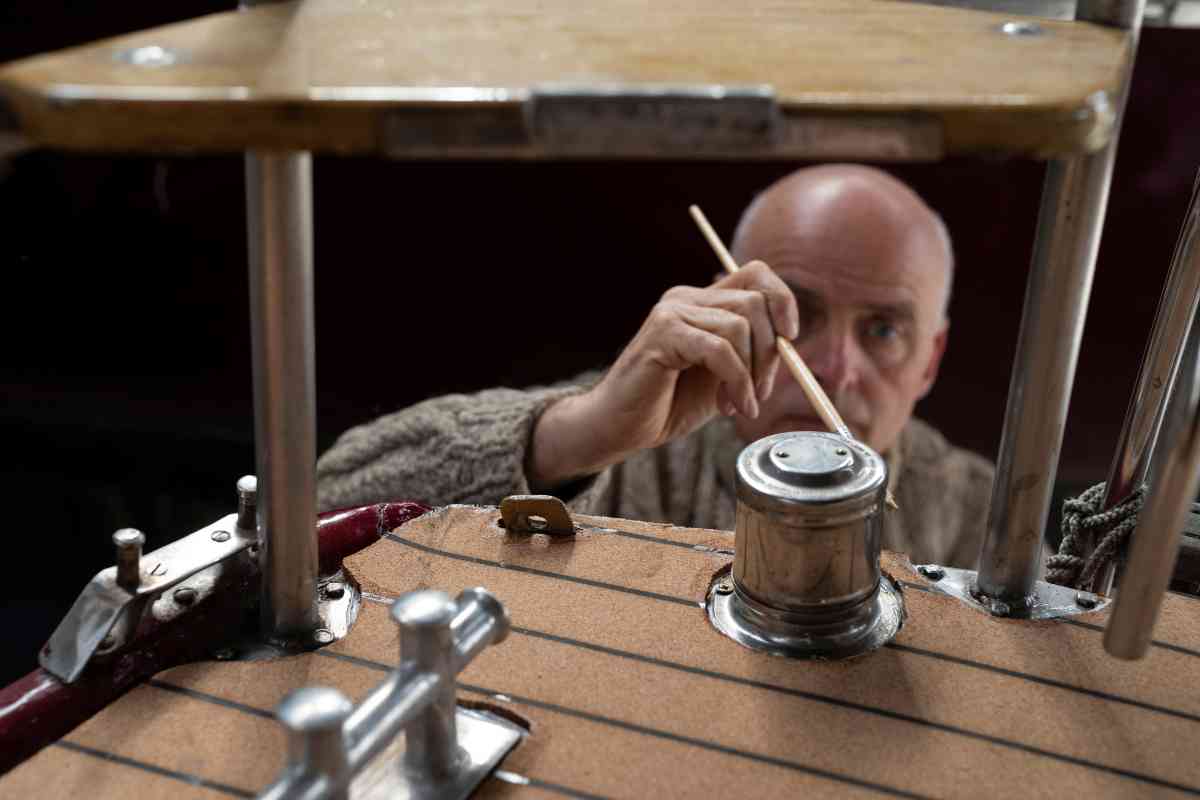
On average, boats are expected to lose between 10-15% of their value in the first year of use, 20-30% by the fifth year, and 30-40% by the tenth year of use. After the tenth year, depreciation will continue steadily until the engine breaks down.
It’s also important to consider replacement value when determining the value of a pre-owned vessel. Replacement value refers to the cost of purchasing a new boat of the same make and model as the pre-owned vessel. This value can be used to determine the maximum amount that a buyer would be willing to pay for the pre-owned boat.
When determining the replacement value, it’s important to consider any upgrades or modifications that have been made to the boat since it was originally purchased. These upgrades can increase the value of the boat beyond its base replacement value.
Ultimately, both depreciation and replacement value are important factors to consider when determining the value of a pre-owned boat. By taking these factors into account, you can get a more accurate picture of the boat’s worth and ensure that you get a fair price when buying or selling a pre-owned vessel.
Negotiating the Best Price
When it comes to buying a used boat, negotiating the best price is key. Here are some tips to help you get the best deal:
- Do your research: Before making an offer, research the boat’s value using resources like NADA Guides or boats.com. This will give you an idea of what the boat is worth and what a fair price would be.
- Be confident: When negotiating, be confident in your offer. Don’t be afraid to make a lower offer than the asking price, but make sure it’s reasonable based on the boat’s value.
- Consider a cash offer: If you have the funds available, consider making a cash offer. This can often help you negotiate a lower price since it eliminates the need for financing.
- Point out any issues: If you notice any issues with the boat, such as needed repairs or maintenance, use these as leverage in your negotiations. Point out the cost of these repairs and use them to justify a lower offer.
- Be willing to walk away: If the seller isn’t willing to negotiate to a price that you’re comfortable with, be willing to walk away. There are plenty of used boats on the market, and you don’t want to overpay for one.
Negotiating the best price for a used boat requires confidence, research, and a willingness to walk away if necessary. By following these tips, you’ll be able to get a fair price for the boat you want.
Additional Considerations
Boat Loans and Insurance
When determining the value of a used boat, it is important to consider the cost of boat loans and insurance. Boat loans are typically offered by banks, credit unions, and marine lenders. The interest rates and terms of these loans can vary widely depending on the lender and the borrower’s credit history. It is important to shop around and compare offers from multiple lenders to find the best deal.
Boat insurance is also an important consideration when owning a boat. Insurance rates can vary depending on the type of boat, its age, and its intended use. It is important to shop around and compare rates from multiple insurance providers to find the best coverage at the best price.
Freshwater vs Saltwater Boats
Another factor to consider when determining the value of a used boat is whether it has been used in freshwater or saltwater. Saltwater boats tend to have more wear and tear due to the corrosive nature of saltwater. Freshwater boats, on the other hand, tend to be in better condition and have a higher resale value.
Power Boats vs Sailboats
When determining the value of a used boat, it is also important to consider whether it is a power boat or a sailboat. Power boats tend to have higher operating costs due to fuel and maintenance expenses, while sailboats require more skill and experience to operate. The value of a boat can also vary depending on its rigging, cosmetics, and overall condition.
It is important to research boat models and manufacturers to get a better understanding of their value. J.D. Power is a reputable source for boat ratings and reviews. By taking these factors into consideration, you can determine a more accurate value for your used boat.
Frequently Asked Questions
How do you determine the value of a used boat?
The value of a used boat is determined by several factors, including the make, model, age, condition, and location of the boat. Some popular resources for determining the value of a used boat include NADA Guides, BUCValu, and Kelley Blue Book Boats.
Is NADA the most accurate source for used boat values?
NADA Guides is one of the most widely used sources for determining the value of a used boat. However, it is important to consider other factors as well, such as the condition of the boat and the location where it is being sold.
What factors affect the value of a used boat?
Several factors can affect the value of a used boat, including the make and model, age, condition, location, and any additional features or upgrades. It is important to consider all of these factors when determining the value of a used boat.
Are there any free boat value estimators available?
Yes, there are several free boat value estimators available online, including NADA Guides, BUCValu, and Kelley Blue Book Boats. However, it is important to keep in mind that these estimators may not always be completely accurate and should be used as a starting point for determining the value of a used boat.
Can you use Kelly Blue Book to determine the value of a boat?
Yes, Kelley Blue Book offers a boat valuation tool that can be used to determine the value of a used boat. However, it is important to note that Kelley Blue Book is not always the most accurate source for boat values and should be used in conjunction with other resources.
Is it possible to negotiate the price of a used boat?
Yes, it is often possible to negotiate the price of a used boat. However, it is important to do your research and have a good understanding of the value of the boat before entering into negotiations. It is also important to consider any additional costs, such as registration fees and maintenance expenses, when determining the final price of a used boat.
